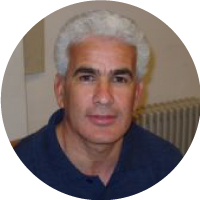OUR PROGRAMS ARE CURRENTLY SUSPENDED.
![]()
![]()
![]()
![]()
Enrich your professional profile and open doors to opportunities with Intercultural Communication!
Our executive programs in Intercultural Communication are part-time postgraduate programs for professionals working with diversity at all levels.
We offer tailored programs with different degree options based on your professional needs, interests and time constraints.
WHY MIC?
Intercultural Communication is imperative for goals of inclusion and enrichment for everyone.
We design our degrees to...
ACHIEVE
a better understanding of your culture and the culture of others.
DEVELOP
skills to understand and analyze multicultural situations and processes.
ENGAGE
in rich interactions with other participants and professors from all over the world.
ENHANCE
your global competencies in sessions held in Switzerland, South Africa and India.
MAKE IMPACT
on your business, organization and life.
LEARN
the necessary skills to create solutions and turn problems into opportunities.
MAXIMIZE
your potential.
WORK
Towards inclusion and social justice

OUR MISSION
To advance intercultural communication in civil society, public institutions, and the business world.
To increase people's awareness of their own culture and the culture of others.
To empower the acquisition of the necessary competence and skills for preventing, mediating and resolving conflicts arising in multicultural situations.
GLOCAL ENGAGEMENT
All our degrees have a strong international component, being held on three different continents in partnerships with leading universities. Most modules are held at Università della Svizzera italiana in Lugano, Switzerland, 1 week is held at Wits University in Johannesburg, South Africa and one at the Indian Institute of Management Ahmedabad in India (we will travel only if conditions permit). Field trips to Geneva, Neuchatel, and Bern in Switzerland complete our intercultural education perspective.
OUTSTANDING FACULTY
You will directly interact with an international faculty of over 30 professors and guest speakers from renowned universities, institutions, and organizations around the world. Guaranteeing the academic excellence of our programs and ensuring its multidisciplinary and multicultural orientation.
 |
|
Jolanta Drzewiecka
|
PARTICIPANT'S PROFILE





The degrees MAS, DAS and CAS are designed for professionals who manage multicultural situations on the operational or strategic level, as well as for those who play a leading role in promoting cultural cohabitation, such as practitioners and management staff in:
Public administration;
International organizations;
Non-governmental organizations;
Development and cooperation organizations;
Business environment (production, trade, tourism, etc.);
Media;
Educational institutions;
Religious institutions.
TESTIMONIALS



 At the MIC you will learn Intercultural communication in an immersive practicum. Here you will see the world and understand the different perspectives values and experiences from every direction. It is my pleasure to invite you to the program!
At the MIC you will learn Intercultural communication in an immersive practicum. Here you will see the world and understand the different perspectives values and experiences from every direction. It is my pleasure to invite you to the program!







